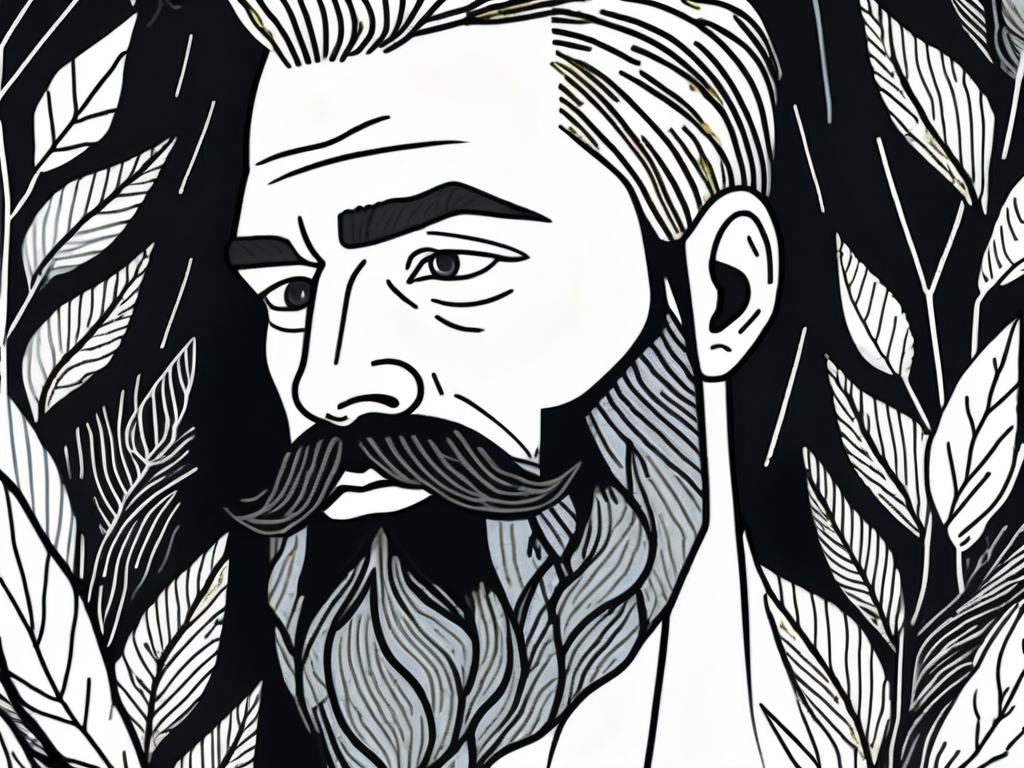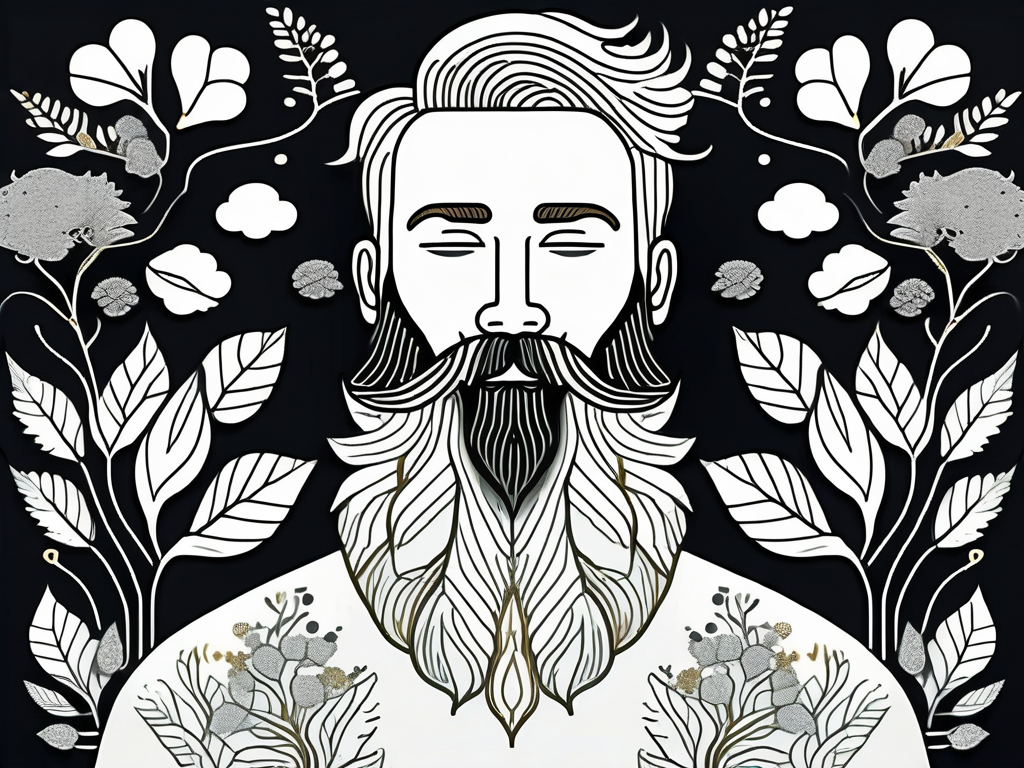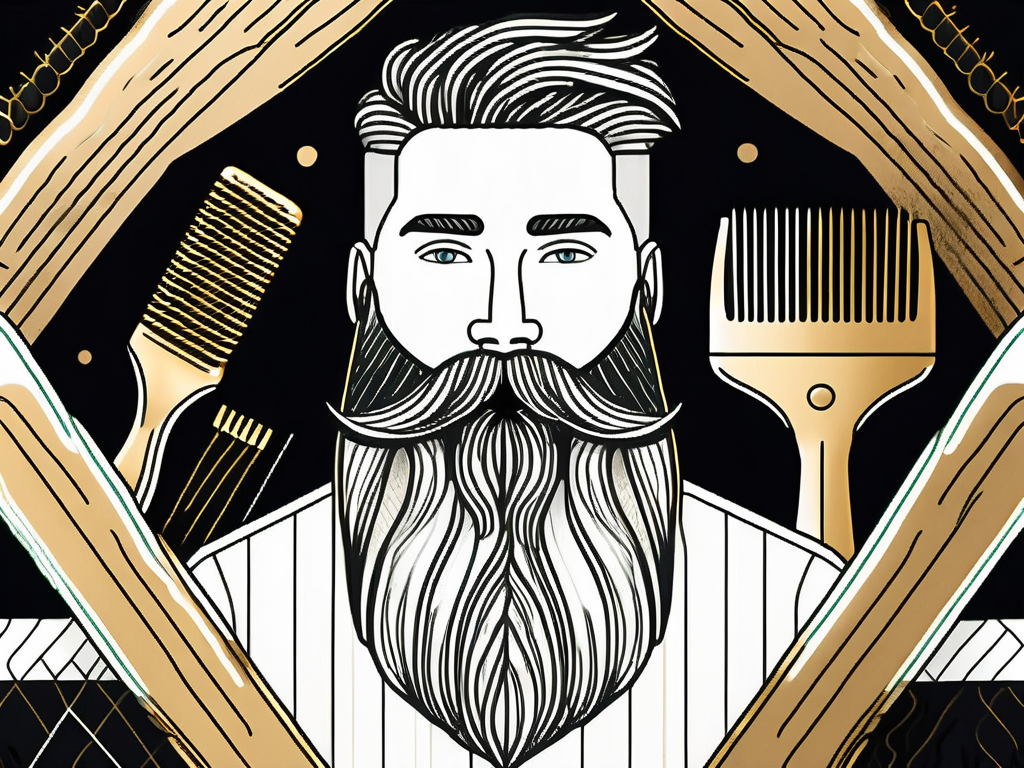 1 Million+ Happy Customers
1 Million+ Happy Customers
 1 Million+ Happy Customers
1 Million+ Happy Customers
Author: The Beard Struggle
Published at: Oct 11, 2024
Many men wonder what happens if they never shave their beards. Whether you're curious about embracing a more rugged look or just want to skip the daily routine, going without a shave has its effects.
From changes in appearance to unexpected skin benefits (or challenges), not shaving your beard can bring about some interesting transformations. In this article, we will delve into:
If you never shave your beard, it will continue to grow, requiring regular grooming to avoid issues like skin irritation, oil buildup, and tangled hair.
Over time, your beard may become thicker and coarser, but proper hygiene is essential to prevent problems like acne or beard dandruff. Like any decision, there are advantages and disadvantages to consider.
The allure of sporting a beard has garnered many fans, and rightly so. Some notable benefits include:
While beards come with perks, there are a few downsides as well. Consider the following:
Choosing not to shave can lead to numerous physical effects, ranging from skin changes to alterations in hair growth patterns. While some may celebrate the advantages of a longer beard, others may find the adjustment challenging.

One of the primary changes that occur when you decide to forgo shaving is how your skin behaves. With a beard, your skin can become more susceptible to oil buildup and dirt, especially if proper hygiene isn’t maintained. A lack of shaving can lead to the following effects:
Additionally, the presence of a beard can create a microclimate that traps moisture and heat against the skin. This can lead to an increase in fungal infections or conditions like seborrheic dermatitis, which manifests as flaky, red patches.
Regular cleansing and moisturizing are essential to mitigate these risks. Beard oils and balms can not only help in maintaining softness but also provide a barrier against environmental pollutants, ensuring that the skin beneath remains healthy and hydrated.
Conversely, there is the slightly romantic notion that not shaving allows your beard to grow to its fullest potential. Many enthusiasts argue that over time, hair may fill in patchy areas, leading to a more robust appearance.
However, this is not universally true for everyone, as mentioned earlier with genetic and hormonal influences, and some may continue to battle uneven growth even with years of patience.
Moreover, the texture of the hair can change as it grows longer. Some individuals may find that their beard becomes coarser or curlier, which can affect how it lays and how manageable it is.
This transformation often requires a commitment to grooming practices, including regular trimming and the use of specialized products designed to tame unruly hair.
The journey of growing a beard can also be a social experience, as many men find camaraderie in sharing tips and tricks with fellow beard enthusiasts, fostering a sense of community around this often personal grooming choice.
The decision to grow a beard is often tied to personal identity and self-expression, impacting how individuals see themselves and how they are perceived by others. Facial hair can convey many things, from maturity to ruggedness, and this significance can vary widely among cultures.

In recent years, societal views on beards have shifted dramatically. Once associated with a particular subculture or considered a relic of the past, beards are now celebrated in various professional and social settings. They can evoke masculinity, creativity, sophistication, or even a laid-back approach to life.
However, these perceptions can be double-edged swords. On one hand, a beard might attract attention positively; on the other hand, some people still hold biases against men with facial hair, viewing them as unkempt or less professional. Ultimately, the social implications of sporting a full beard are complex and often depend on individual experience.
Beards are more than just facial hair; they can become a significant part of personal identity and self-expression. Here’s how:
Expressing Individuality: Beards offer a creative outlet, allowing men to experiment with different styles—whether it’s a classic, well-groomed look or a bold, untamed mane.
Building a Sense of Belonging: The "beard movement" has created communities where men share grooming tips and celebrate the process of growing facial hair.
Social Media Influence: Platforms like Instagram and Twitter have amplified the beard trend, with popular hashtags like #BeardLife and #BeardGang. These virtual spaces allow individuals to connect, showcase their beards, and inspire one another.
Symbolizing Personal Growth: For some, growing a beard represents a life change—such as starting a new job, marking a relationship milestone, or overcoming personal challenges.
A Journey of Self-Acceptance: As a beard grows, it can symbolize personal growth, resilience, and newfound confidence. The journey often reflects deeper aspects of identity and the courage to embrace change.
With a bushy beard comes the responsibility of maintenance and hygiene. It is a common misconception that a beard is self-cleaning.
However, individuals need to establish a proper grooming routine to keep their beards healthy. Without this routine, it becomes difficult to avoid issues like skin irritation and unpleasant odors, which can be especially problematic in social or professional settings.

Regularly washing your beard is crucial to prevent dirt and oils from accumulating. Here are some essential grooming practices:
By following these hygiene practices, you can enjoy the aesthetics of a fuller beard without compromising skin health.
Additionally, incorporating a weekly deep conditioning treatment can significantly enhance the softness and manageability of your beard, making it not only look better but feel better too. This extra step can also help in reducing split ends and promoting overall hair strength.
Despite popular folklore, some myths about beard hygiene could lead to misguided practices. Here are a few common misconceptions:
Clearing these myths is vital in ensuring a healthy and well-groomed beard. Furthermore, many people overlook the importance of skin health beneath the beard. The skin can become dry and flaky if not cared for, leading to conditions like beard dandruff or folliculitis.
Regular exfoliation of the skin beneath the beard can help remove dead skin cells and promote a healthier environment for hair growth, ensuring that your beard not only looks good but is also supported by healthy skin.
Choosing not to shave your beard can lead to a unique set of benefits and challenges. While a beard can enhance your personal style and provide a sense of identity, it also requires proper care and maintenance to avoid skin issues, irritation, and hygiene problems.
Embracing your beard is a journey of self-expression, but it’s essential to establish a grooming routine that keeps it clean, healthy, and looking its best. Unleash your beard’s full potential with The Beard Struggle—because a legendary beard starts with the right products!
Comments